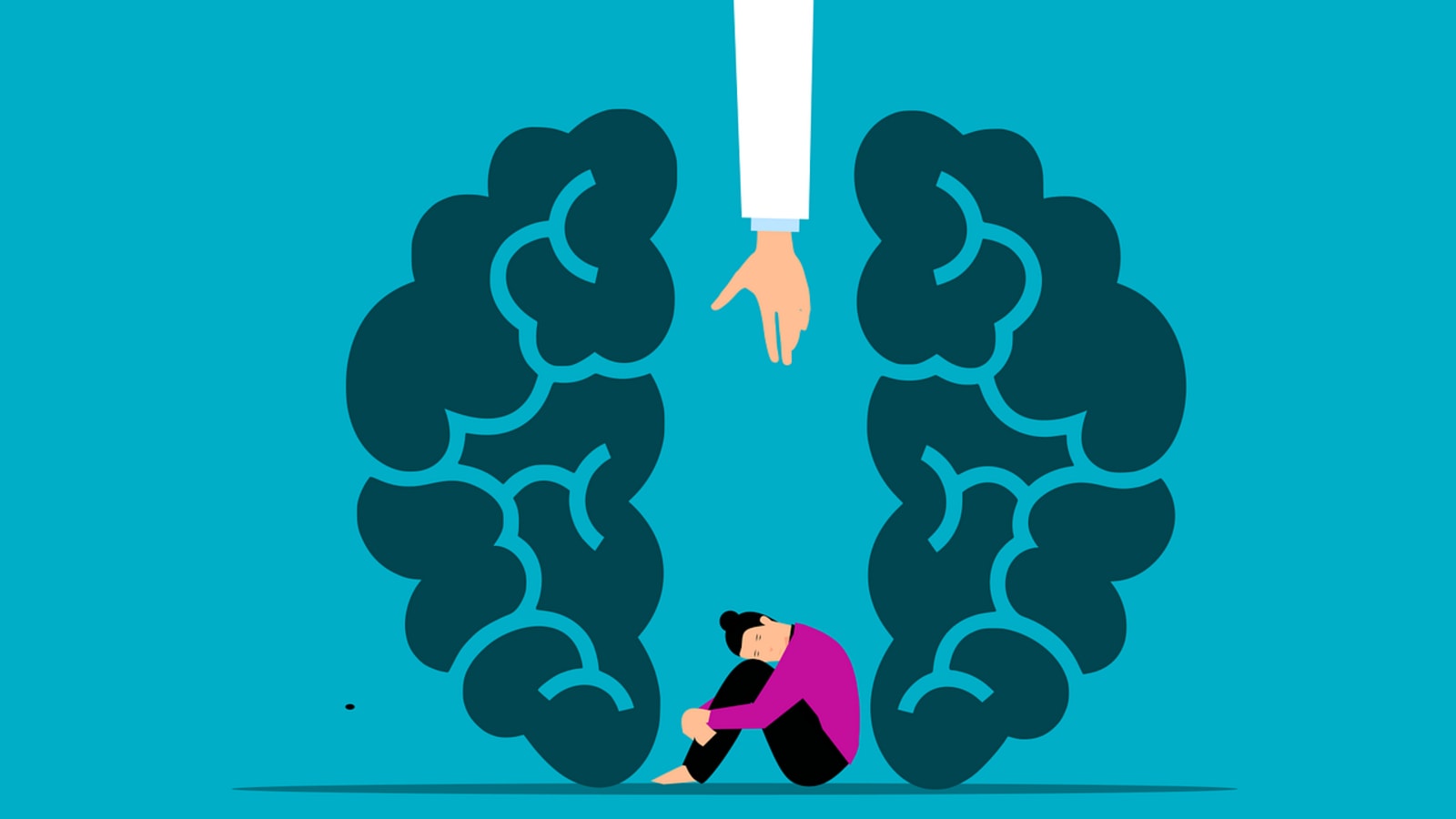Don’t Overlook the Impact of Climate Change on Mental Health in India
As we sip our chai and discuss the latest drama in our favorite soap operas, the last thing on our minds is probably not the shifting weather patterns outside our window. Yet, as we know all too well, climate change is slowly but surely creeping into every aspect of our lives—including our mental health. So let’s put down the remote for just a moment and dig deeper into the often-overlooked link between climate change and mental health in India.
Understanding Climate Change: Not Just an Environmental Issue
When we hear the term "climate change," we are often bombarded with statistics about rising temperatures, melting glaciers, and erratic monsoons. What we might not realize, however, is that these changes can lead to significant emotional and psychological ramifications for people across the globe, and India is no exception.
Climate change isn’t just an environmental issue; it’s also a social, economic, and mental health issue. Increased stressors, such as environmental degradation, loss of livelihood, or displacement from one’s home due to natural disasters, can create a perfect storm of mental health challenges. According to a report by the Indian Council of Medical Research (ICMR), the country could see a dramatic rise in mental health disorders associated with climate change in the coming decades.
The Psychological Impact of Natural Disasters
As we’ve all seen in the news, when a cyclone hits Odisha or floods wreak havoc in Kerala, whole communities are uprooted. But what happens next? The mental health consequences can be severe. Post-Traumatic Stress Disorder (PTSD), anxiety, and depression are more common than we might think.
Imagine if your home was suddenly swept away by a flood— you’d probably not only lose your possessions but also your sense of security. A study by Kumar et al. (2020) revealed that nearly 75% of people affected by natural disasters suffer from long-term mental health issues. This statistic is astonishing when we consider how vulnerable different populations in India are, from farmers in rural areas to urban dwellers in flood-prone cities.
Vulnerable Populations: Who’s Most Affected?
While climate change impacts us all, certain segments of the population are disproportionately affected. We must consider groups like farmers, laborers, and those living in poverty, who rely heavily on stable weather conditions for their livelihoods.
Did you know that India has one of the highest rates of farmer suicides in the world? No one wants to think about it, but anxiety stemming from erratic rainfall and crop failures can push individuals to their breaking point. A study published in the Journal of Environmental Psychology highlights the significance of environmental stressors in mental health challenges faced by farmers, and the statistics are nothing short of alarming.
Climate Anxiety: A New Term for a New Era
If you’ve felt a knot in your stomach while watching climate-related disasters on the news, you’re not alone. Climate anxiety refers to the chronic fear of environmental doom. In India, where climatic events are frequent and often deadly, this kind of anxiety can become commonplace.
Imagine standing in the middle of a drought-affected field, looking at crops wilting in the sun. Now that’s something that can give even the most optimistic person a serious case of the heebie-jeebies. Various surveys across India reveal that younger generations, particularly students, are increasingly reporting feelings of helplessness and despair because of climate change.
Socioeconomic Factors: The Domino Effect
Now, let’s put on our ‘detective hats’ and look at how socioeconomic factors intertwine with mental health in the context of climate change. If a family’s primary income is wiped out due to an unexpected drought or flood, the struggle doesn’t just end with financial loss. The stress mounts, leading to familial tensions, relationship issues, and, ultimately, psychological distress.
A Government of India report states that the GDP loss from climate change could range from 2.8% to 5.3% by 2050, depending on various projections. These economic repercussions will undoubtedly trickle down to family units, affecting their mental health and emotional stability as well.
The Role of Government: Are We Doing Enough?
It’s easy to point fingers and say the government isn’t doing enough. But let’s be fair; tackling climate change and its impact on mental health is a complex problem. However, it doesn’t mean we shouldn’t demand more action.
Government initiatives like the National Mental Health Programme and the National Action Plan on Climate Change exist. But are they doing enough? A report from the National Human Rights Commission of India stresses the need for integrating mental health services with climate adaptation strategies. Isn’t it about time we prioritize mental health as a critical component in climate change discussions?
Ways to Combat Mental Health Issues Linked with Climate Change
While the challenges are daunting, let’s not throw our hands up in despair just yet. There are ways we can tackle these mental health issues head-on. Here are some strategies we can collectively adopt:
- Community Support Systems: Building strong community ties can offer emotional support for those affected by climate change.
- Mental Health Awareness Programs: Initiatives can help communities recognize the signs of mental health issues and encourage individuals to seek help.
- Therapeutic Resources: Establishing local mental health resources, including counselors and support groups, can make a significant difference.
- Education and Training: Providing information about coping mechanisms can help communities better handle climate-related stressors.
“Mental health is an integral part of health; indeed, there is no health without mental health.” — World Health Organization
The Role of Technology: A Double-Edged Sword
In today’s world, technology is a significant player in mental health discussions. Social media platforms can be both a source of comfort and distress. While they offer spaces for sharing experiences and seeking support, they can also amplify feelings of anxiety when scrolling through posts about climate doom—like an endless loop of negativity!
Nonetheless, we can leverage technology to create apps that focus on mental well-being and climate awareness, promoting discussions around the link between environmental changes and psychological well-being.
The Importance of Research and Advocacy
Let’s put on our research hats again and remind ourselves of how crucial it is to study this correlation further. While we have some insights into the mental health implications of climate change, there is still a considerable gap in our understanding.
Encouraging interdisciplinary research combining psychology, environmental science, and sociology can help us unravel the complexities involved. In India, academic institutions, NGOs, and government bodies must collaborate to frame policies that address not only the environmental but also the mental health crisis.
Research is the key to opening new doors for solutions—let’s ensure those doors are wide open!
Conclusion: Looking Ahead with Hope
So, what have we learned? Climate change’s impact on mental health in India is a serious issue that warrants our attention. From the psychological toll of natural disasters to the anxiety stemming from climate uncertainty, the ramifications are clear; we cannot afford to turn a blind eye.
It’s not all doom and gloom, though! We are in this together—facing challenges head-on while sharing stories, support, and laughter (yes, even while navigating climate issues!). As we advocate for better mental health resources and push for significant policy changes, let’s not lose sight of our collective power. After all, united we stand, divided we’ll just scroll through climate doom memes all day.
Key Takeaways
- Climate change significantly impacts mental health, particularly in vulnerable populations in India.
- Natural disasters can lead to PTSD, anxiety, and depression among affected individuals.
- Community support, mental health awareness, and technology can help combat the stigma associated with mental health issues.
- Research into the correlation between climate change and mental health must continue to develop effective policies.
As we wrap up, let’s remember a quote from Indian sprinter Dutee Chand: “You have to fight and fight and fight for everything you want in life.” The battle against climate change and its impact on mental health requires equally fierce determination. Let’s be warriors of change—echoing laughter while we take our well-deserved creative breaks to strategize and recharge.
References
- Kumar et al. (2020). Journal of Environmental Psychology.
- Government of India Reports… [Link to reports, e.g., ICMR, GEO etc.]
- World Health Organization. (2021). Global Mental Health.
By allowing a touch of humor and human connection to surface throughout this discussion, we can begin to take this journey toward better mental health together. Thank you for spending time with me on this important issue!


